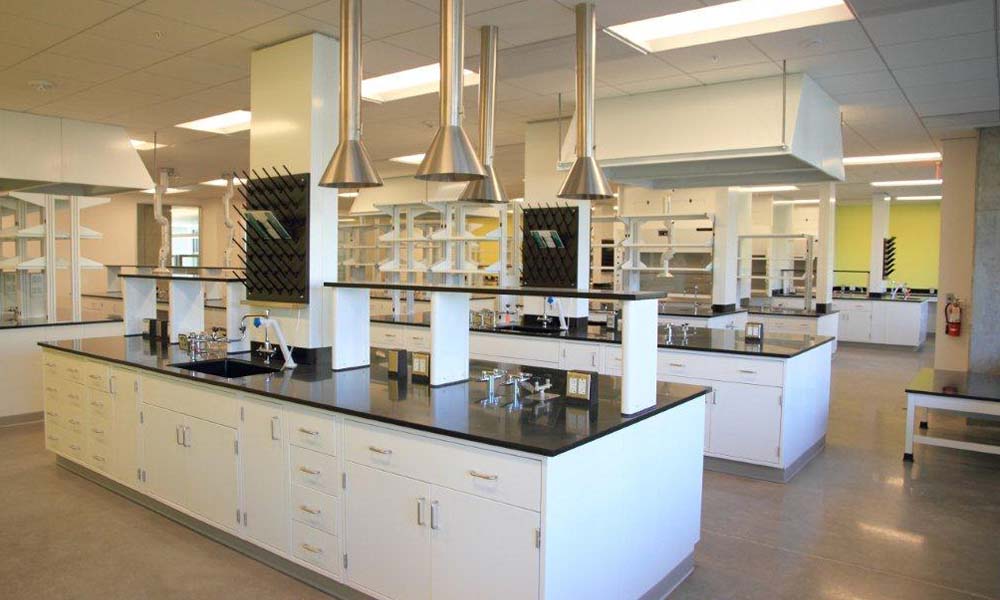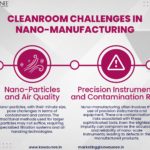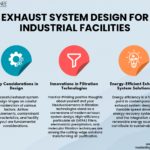SEFA Standards And Its Importance For Lab Furniture
The Scientific Equipment and Furniture Association (SEFA) founded in 1988, is an international standard to check the safety and structural integrity of lab furniture. SEFA addresses the demands and needs of its members and improves the quality and safety of lab facilities through the establishment of product safety standards. The standard gives manufacturers and users a standard tool for the functionality of lab products.
SEFA is an association, and all members can take part in the development of “Recommended Practice”. The association comprises a board of directors, advisory board, and professional staff.
SEFA CERTIFICATION
In 2004, SEFA members established a set of certification standards. Its purpose is to check and improve the quality of lab facilities ranging from work surfaces to liquid chemical storage, to follow standards at every step from design to production. SEFA certified products must be tested by one of the SEFA certifying testing labs and are recognized as high-quality products and facilities.
SEFA standards also include proposal writing, installations, and work procedures. Many government agencies, industries, schools, colleges, and universities use SEFA certified products.
SEFA TESTS
Following are the tests which must be performed on every product to recognize it as SEFA recommended.
- Resistance test/ Mechanical test: like loads on surfaces, cabinets, and drawers.
- Cycling test / Dynamic test: effects of force on doors and cabinets.
- Work surface finishing test: exposing to 49 chemicals including acids.
SEFA RECOMMENDED PRACTICES
SEFA distributes a list of Recommended Practices that are used by manufacturers in the manufacturing of lab facilities.
- Fume hoods (SEFA 1)
- Installations (SEFA 2)
- Laboratory work surfaces (SEFA 3)
- Glossary (SEFA 4)
- Scope of work (SEFA 5)
- Laboratory Fixtures (SEFA 7)
- Laboratory casework-Metal (SEFA 8M),
- Laboratory casework-Wood (SEFA 8W),
- Laboratory grade Phenolic casework (SEFA 8PH),
- Laboratory grade Plastic Laminate casework (SEFA 8PL),
- Laboratory grade Polypropylene casework (SEFA 8P)
- Ductless hoods (SEFA 9)
- Laboratory furniture system (SEFA 10)
- Liquid chemical storage (SEFA 11)
The purpose of the recommended practice is to give architects, engineers, manufacturers, and users with standard practices. The recommended practices give a comprehensive single source of knowledge. While member industries also take responsibility for the conditions and environment in which they work, thus providing the customer with high-quality facilities.
SEFA CERTIFIED FUME HOODS
A laboratory fume hood is a safety product that is specially designed to carry dangerous effluents away from the laboratory and out of the building. Fume hoods must be made from flame-resistant materials. A fume hood must contain a bypass system to control the airflow patterns within the hood. Fume hoods are available in a variety of shapes, sizes, materials, and finishes.
This practice is also consistent with ASHRAE Standard 110-2016: Method of Testing Performance of Laboratory Fume Hoods.
SEFA CERTIFIED INSTALLATIONS
This recommended practice provides information regarding laboratory furniture and equipment installations. This information is used as a guide for coordination and work sequencing.
SEFA CERTIFIED WORK SURFACES
Different tests are performed to check the surface non-reactivity and durability and then surfaces are rated into four different categories. First the surface is exposed to chemicals for 24 hours then washed with water, then with detergent mixed water, and finally with isopropyl alcohol, and then finally wash with distilled water and clean with a dried cloth. And then the surface is rated according to its stability to chemicals.
GLOSSARY OF TERMS
SEFA has developed this Glossary of Terms to understand between designers, architects, manufacturers, purchasers and end users. SEFA terms are frequently used to define products and work involved.
SEFA allows all interested parties to submit or suggest additional terms or any changes to those terms already defined by the Association. This is considered as a standard and helps to resolve any disputes that may arise or to add the applicable terms in any contract or related documents.
SEFA SCOPE OF WORK
In this specification, standard of quality is the prime intent. Furniture and equipment that differ from standards should not be considered unless complete proof with the proposal with complete drawings and samples showing all necessary requirements of this specification are attached. SEFA association may reject the equipment which is not according to established standards.
LABORATORY FIXTURES
These recommended practices apply to laboratory service fixtures and fittings, including valves and related products and safety equipment, comprising emergency showers, emergency eye wash and other related products.
LABORATORY CASEWORK-METAL (SEFA 8M)
This specification should give manufacturers and users, tools for evaluating safety and durability of metal laboratory casework. Casework and shelving made for lab use are subjected to various tests. Metal laboratory casework comprises base cabinets, counter mounted cabinets, tall cabinets and shelving.
This document describes the distinguishing features of metal laboratory casework. And great care should be taken while testing laboratory casework.
LABORATORY CASEWORK-WOOD (SEFA 8W)
This specification should give manufacturers and users, tools for evaluating safety and durability of wood laboratory casework. laboratory grade wooden casework comprises base cabinets, wall cabinets, counter mounted cabinets, tall cabinets, tables, and shelving.
This document describes the distinguishing features of laboratory grade wooden casework. And great care should be taken while testing laboratory casework.
LABORATORY GRADE PHENOLIC CASEWORK (SEFA 8PH)
This specification should give manufacturers and users, tools for evaluating safety and durability of Phenolic laboratory grade furniture. Phenolic laboratory grade casework shall comprise base cabinets, wall cabinets, counter mounted cabinets, tall cabinets, and shelving.
LABORATORY GRADE PLASTIC LAMINATE CASEWORK (SEFA 8PL)
This specification should give manufacturers and users, tools for evaluating safety and durability of Plastic laminate laboratory casework. Plastic laminate laboratory casework shall be constructed of a core, high pressure laminate, backer, liner or thermally fused melamine.
LABORATORY GRADE POLYPROPYLENE CASEWORK (SEFA 8P)
This specification should give manufacturers and users, tools for evaluating safety and durability of Polypropylene laboratory casework. Polypropylene laboratory grade casework comprises base cabinets, wall cabinets, tall cabinets, tables, and shelving.
DUCTLESS HOODS (SEFA 9)
This specification provides information regarding Ductless hoods. Ductless Hood is a re-circulating filtration device, which is not integral to the laboratory ventilation system. It provides information regarding filtration, feasibility, safety and limitations, and manufacture recommendations and responsibilities.
This specification provides guidelines regarding correct application, use, and installation of ductless hoods.
LIQUID CHEMICAL STORAGE (SEFA 11)
This Recommended Practice provides descriptions of various laboratory furniture systems and gives information regarding important features of each system.
LABORATORY FURNITURE SYSTEM (SEFA 10)
This recommended practice provides information regarding types of liquid chemical storage cabinets, construction, installation, and basic information about storage. It also provides information on which chemicals can be stored together and which can be stored together.
Comments are closed.











